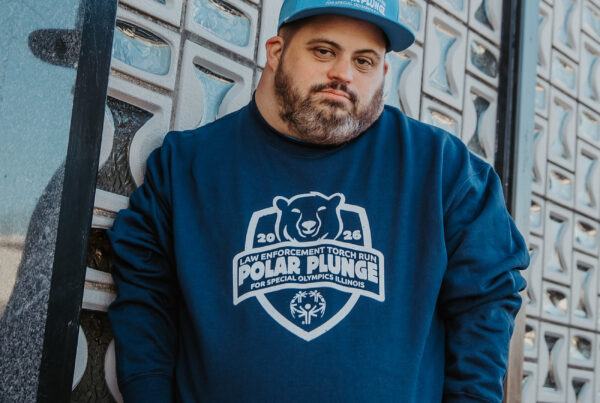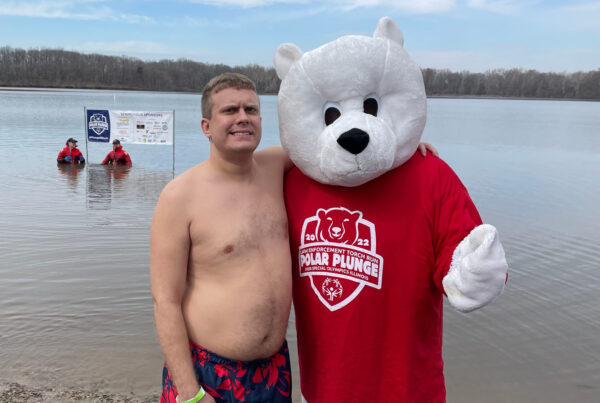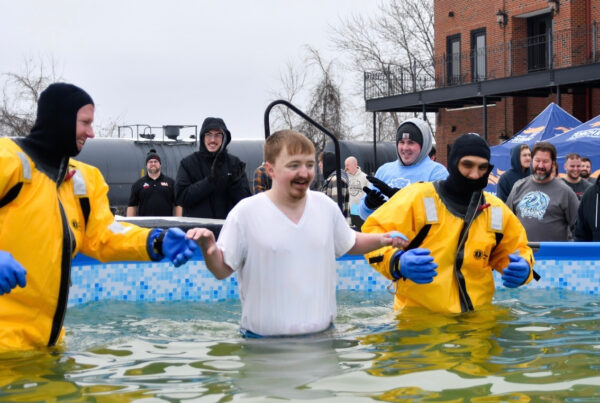Smiles. High fives. Hugs. Pats of the back. Everywhere you turned this past week in Chicago, you saw Special Olympics athletes and law enforcement officers and the unity between the two.
This fellowship was on display during the annual International Law Enforcement Torch Run (LETR) Conference, held October 28-30 at the Sheraton Grand Chicago Riverwalk.
The event, which is held in a new location each year, returned to Illinois for the first time since 1996. Attendees ranged from those athletes and officers, along with the chief executive officers from approximately 45 Special Olympics programs across the world, the athlete and officer families, program staff, as well as many others.

And, throughout the weekend, among the comradery, a similar sentiment rang out from everyone in attendance – the importance of community and acceptance.
“The Law Enforcement Torch Run makes a real impact on individuals with intellectual disabilities in a local community,” said Pat Hoey, retired Chief of Police, Carpentersville, Illinois, and Region 4 Coordinator for LETR International Executive Council. “Building inclusion in a community can start right there – and helps show the Special Olympics athletes they can be accepted for who they are.”
Nori Barnes, a Special Olympics Illinois athlete from Belvidere, shared their moving story and how the Special Olympics movement and the officers of the Illinois Law Enforcement Torch Run, like Hoey, have impacted Nori’s life.

After Nori’s experience with LETR officers, her perspective on officers changed. “I started seeing how police officers interacted with my friends and teammates at Special Olympic events. It allowed me to start relaxing around them a bit more,” said Nori.
“Police officers like Pat Hoey and Sergeant Amy from Huntley, [Illinois] have allowed me to see them not only as regular humans, but also as dear friends and even my family. If it was not for SO and LETR, I would not be the advocate that I am today,” Nori continued.
“Also, I feel that I would not have been able to ask for help, like I can now, without the blessings of police officers in my life. My involvement in LETR has allowed me to learn from the trauma in my life and find safety in police officers.”
The tradition of the Law Enforcement Torch Run goes back to 1981, when a flicker of hope for Special Olympics athletes became a roaring flame of stability for the Special Olympics movement.
In fact, it was announced at the conference that the group has now raised more than $1 billion since its inception in 1981 to support this life-changing programming for Special Olympics athletes.
Participating officers are now the guardians of the Flame of Hope that millions of Special Olympics athletes around the globe today recognize as a symbol of dreams, determination, and perseverance.
In Illinois, the Law Enforcement Torch Run has two goals, to raise money and to gain awareness for the athletes who participate in Special Olympics. Participating departments host fundraisers and attend competitions to hand out awards to athletes.

One breakout featured athletes during a question-and-answer session, and they shared how the involvement of law enforcement officers has meant the world to them.
Susan Kuborn, an athlete from Rockford, Illinois, shared that she felt proud to receive a medal from an officer and be able to shake their hand.
Perhaps athlete Alex Huegen from Bartelso, Illinois summed it up best when he said, “The community that everyone has attends and supports. That’s pretty much the answer to everything.”
Building a more inclusive world may just be an answer to everything, and these officers are working toward just that, one community at a time.
You can learn more about how to get involved with the Illinois Law Enforcement Torch Run on our website.




